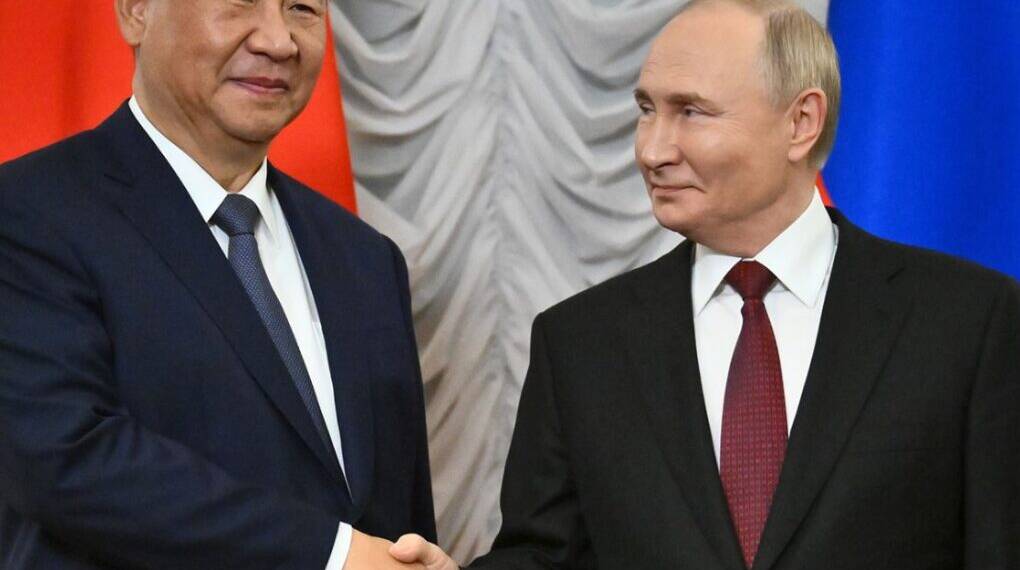Russia and China pledged to intensify joint efforts on missile defense and nuclear security during high-level consultations in Moscow last week, describing U.S. policies under President Donald Trump as the primary source of “growing strategic risks” to global stability.
The November 19 talks, co-chaired by Russian Deputy Foreign Minister Sergey Ryabkov and China’s Vice Foreign Minister Ma Zhaoxu, focused on countering what both sides called “destabilizing factors,” including Washington’s proposed multi-hundred-billion-dollar “Golden Dome” missile shield and Trump’s directive to prepare for the resumption of U.S. nuclear testing after a 33-year moratorium.
A joint statement released late Monday emphasized that Moscow and Beijing “will strengthen high-level strategic exchanges and deepen practical cooperation” in missile defense, early-warning systems, and risk-reduction measures. While no specific new agreements were announced, diplomatic sources said the two powers are exploring closer coordination on space-based sensors and hypersonic countermeasures.
The meeting came one day before China’s highest-ranking military officer, Central Military Commission Vice Chairman General Zhang Youxia, held separate talks in Moscow with Russian Defense Minister Andrei Belousov. The Chinese general declared that the two militaries “will continue elevating the level of joint exercises and combat training” and “resolutely support each other on issues concerning core interests.”
U.S. moves cited as catalyst
Both delegations explicitly linked their deepening alignment to recent American initiatives. Trump’s “Golden Dome” plan, unveiled in May 2025, envisions a layered homeland defense incorporating thousands of space-based interceptors by the end of the decade. Russian and Chinese officials have repeatedly warned that any effective U.S. national missile shield would undermine mutual deterrence and force them to expand offensive arsenals.
Trump’s October 30 order to the Pentagon to ready the Nevada National Security Site for possible underground nuclear tests has drawn even sharper criticism. Russia dismissed U.S. claims of recent Russian or Chinese violations of the testing moratorium as “fabrications,” while Beijing accused Washington of “tearing up the global non-proliferation regime for its own hegemonic benefit.”
New START’s looming expiration
The consultations took place against the backdrop of the last remaining U.S.-Russian nuclear arms treaty, New START, which expires on February 5, 2026—70 days from now. Moscow has offered a one-year extension to negotiate a successor, but the Trump administration has not responded publicly and has insisted any future framework must include China’s rapidly growing arsenal, a condition Beijing rejects outright.
Without an extension or replacement, both the United States and Russia would be free to deploy unlimited numbers of strategic warheads for the first time since 1972.
Reactions
White House Press Secretary Karoline Leavitt declined to comment directly on the Russia-China statement but reiterated that “America will never accept strategic parity with adversaries who refuse transparency.”
In Beijing, Foreign Ministry spokesperson Lin Jian said China “will take all necessary measures to safeguard its legitimate security interests” and accused the U.S. of “cold war mentality.”
Arms control advocates expressed alarm. “We are sleepwalking toward the end of meaningful nuclear constraints,” said Daryl Kimball, executive director of the Arms Control Association in Washington. “The combination of a collapsing treaty architecture, renewed testing threats, and a prospective U.S. missile shield is the most dangerous convergence since the 1980s.”
As winter settles over Moscow, the message from Russia and China was unambiguous: faced with what they see as American unilateralism, the two powers intend to stand closer together than ever on the issues that matter most—nuclear weapons and the missiles that carry them.








